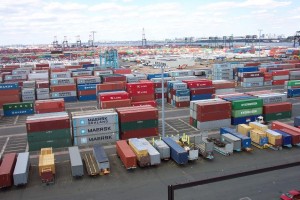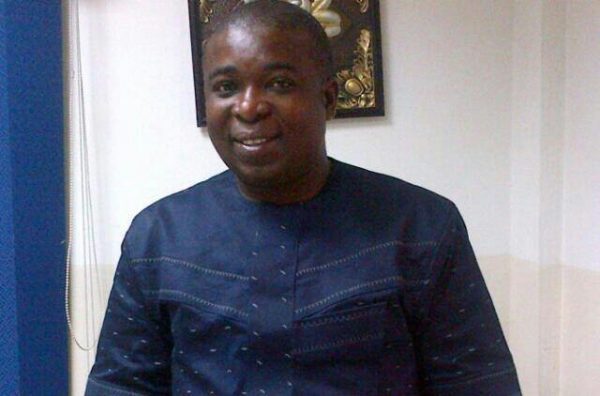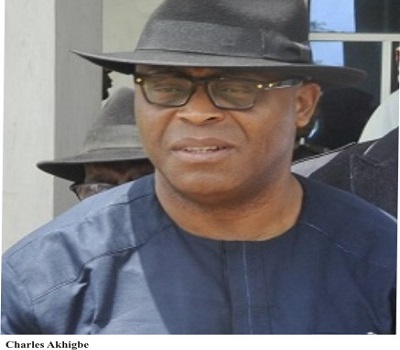Arriving At The Appropriate Port Charges In Nigeria

According to business dictionary, port charges are “taxes and surcharge which apply to ship and or the cargo on board the ship once it has reached port”.
These charges are also, fees collected from ship owners and cargo owners to defray the cost of constructing, maintaining, and operating hydraulic engineering and navigation facilities, fairways, and canals, as well as the cost of providing various services, including piloting, docking, supply water, handling freight, and arranging services through agencies.
The same dictionary cautions that “rise in these charges may reduce the number of goods arriving at that port, or otherwise impact the price of doing business”.
It is also instructive that port charges payable by ship owners may be compulsory. Compulsory charges are collected whenever a vessel enters a port, regardless of whether the ship has ordered any service or not. Non-compulsory charges are collected only when specific services are rendered to the vessel. Both types are based on the vessel’s capacity in registered tons, its length and draft, and its commercials load, which includes cargo delivered or taken on and passengers. In most ‘capitalist ports’, ship owners pay charges that are set by taking several factors into consideration. They receive certain benefits once their port charges are paid depending on how often they use a given port on a regular route. Cargo owners pay charges based either on weight or volume of the cargo.
Issues bordering on appropriate port charges are therefore as old as the port system itself. These issues often pitch users and providers of shipping services against one another.
Maritime business is globalised and so governed by international best practices. The business is also subjected to dynamism, technology, rules and operations including pricing policy for services rendered.
In the Nigerian port system, the providers and users of shipping services include: Nigerian Ports Authority, the Nigerian Shippers’ Council, Terminal/jetty operators, shipping companies and shipping agents, freight forwarders, financial institutions, the Nigerian Maritime Administration ad Safety Agency (NIMASA), among others.
The conglomeration of these stakeholders is regarded as the Port Community; with the Nigerian Ports Authority (NPA) as the rallying point. For being the owners of the ports, NPA is sometimes blamed for the errors and inefficiency of these players.
Unfortunately, NPA is usually handicapped as these players take on each other for different issues, top among which is port charges. As mentioned earlier, port charges are payments for the services rendered in the port.
Lately, there have been renewed issues about appropriate port charges and this time, it is the Economic Regulator of the port system; the Nigerian Shippers’ Council that has been in the eye of the storm, culminating in litigations, which was late last year decided in its favour by a Federal High Court in Lagos, though an appeal has been made to challenge this ruling.
Arriving At ‘Appropriate’ Port Charges
What is an appropriate port charge? Determining what appropriate in terms of charges collectable by providers of services in the port is very subjective. Granted that port charges are driven by both micro and macro economic variables, it is none-the-less contentious; it is contentious because every service provider wants to maximize profit and minimize cost, while the user of the service wants (in addition to promptness in service delivery) a fair prize that is comparatively lower.
Therefore, any increase or decreases in port charges triggers-off agitation.
It is well-known fact that the business climate has since changed in port operations in Nigeria. The market has been liberalized and there is an influx of private players and an increase in competition in the industry. This has necessitated the need for processes and standardization aimed at better customer-focused, operational efficiency and compliance to standards.
These developments imply a major change in strategy for port operators – they now need to attract and retain their customers with attractive pricing and prompt service delivery, and at the same time, keep an eye on profitability and competitors.
Pre-Port Concession Pricing Regime
Prior to the concession of the port in 2006, Nigerian Ports Authority (a government agency) was both a regular and an operator. The port authority, through her supervising ministry (The Federal Ministry of Transport) sets standard of operations including port charges. The tariffs or charges were reviewed from time to time according to the prevailing economic situation. In carrying out this statutory responsibility, NPA did not arbitrarily set tariffs, all port charges were approved by the Federal Government.
Post-Port Concession Pricing Regime
In 2006, Government, through the port concessioning programme, brought in the private sector as the main catalyst to drive port operations while reducing NPA’s role to that of a ‘landlord’ charged with the responsibility of providing enabling environment and regulatory frame work. In view of this Nigerian Ports Authority ceased to be the commercial regulator.
By the policy, NPA also ceased to handle loading and unloading of goods or embarking or disembarking of passengers in or from a ship. It also stopped being in charge of lighterage or the sorting. Weighing, warehousing and handling of goods; and for the carriage of passengers or goods.
By virtue of the concession policy, the statutory responsibilities of the NPA are now restricted to:
- Provision of efficient ship to shore operations
- Maintenance of s customer-friendly environment
- Ensuring compliance with IMO convention and ISPS Code
- Regulating Maritime business and promoting Ports security and safe haven for ships.
- Safeguarding and securing assets of the Authority while maintaining their optimal use.
However, notwithstanding the change of status, NPA is still expected to achieve adequate returns of investment through:
- Increase in Cargo Traffic
- Maximizing revenue generation and collection
- Minimizing cost
- Ensuring budgetary control and discipline.
The Need For A Commercial Regulator: Post-Port Concession
Because of the complexities associated with the interplay of actors in the system, there have been issues of appropriate port pricing, especially 2006 when the ports were concessioned.
The provision of a commercial port regulator is an integral part of the port concession programme, but because the Port and Habour Bill is yet to be passed, the role has now been warehoused in the Nigerian Shippers’ Council by the Federal Government.
Those who are of the view that there is no appropriate pricing in Nigerian ports have also justified their position by insisting that Nigerian ports are being rated as the most expensive in the West African sub-region.
It is instructive that, to ensure fairness in pricing for services to be rendered by the terminal operators, the three parties, namely: the Bureau of Public Enterprises, the Nigerian Ports Authority and the concessionaires signed a Memorandum of Understanding (MOU) prior to the flag-off of port concession.
The agreement reads in part:
“The lessee shall ensure that the operations rates shall be in accordance with application with applicable laws and competitive within the port and with other competing ports of Nigeria having facilities similar to the lease property.
The lessee shall not make any increases in the operations rates, unless agreed to in writing by the parties and any required consents of governmental Authorities have been obtained.
The level of terminal handling charges and inland bonded terminal charges shall not exceed the market rates charged by the shipping agents and the less or respectively prior to this agreement, and any future increases shall require the consent of the relevant Government Authorities.”
Apparently, it is this development that prompted the Federal Government to appoint the Nigerian Shippers’ Council as the commercial regulator of the port system.
And The Nigerian Shippers’ Council ‘Bites’
After months of broad based consultations with stakeholders and after carrying out a port pricing comparative study in the neighbouring ports of Benin Republic, Ghana, The Gambia and Cameroun, the Nigerian Shippers’ Council on November 1, 2014 issued a notice to all the terminal operators and shipping companies on the shipping charges applicable to them.
By the Notice, the Shippers’ Council reversed the Progressive Storage Charge to the pre-May 2009 rates, in what was aimed at improving trade facilitation in Nigerian ports. What obviously angered the Council was the discovery that the terminal operators (contrary to the Memorandum of Understanding) increased the storage charges without consultations and approval. They were alleged to have disregarded the rate approved by the Transport Minister in 2009. The Economic Regulator also touched on Container Free Storage Period to seven days as against three days.
The Ports Economic Regulator equally increased Container Demurrage-free days to 10 days. On the container Deposit which importers and freight forwarders had complained about, the Council directed that henceforth, this should be refunded within 10days after the empties had been returned to the shipping companies. It warned that failure would attract payment of interest on the outstanding amount of deposit at the Central Bank of Nigeria’s prevailing commercial interest rate until the fund is effected. The Notice also includes reduction by 50 percent on Shipping Line Agency Charge and Container Cleaning and Maintenance Charge.
The Nigerian Shippers’ Council’s directives immediately drew support from many stakeholders including shippers and freight forwarders.
One of them, the President, Shippers Association of Lagos State, Mr. Jonathan Nicol, assured that members would resist high charges by shipping companies and terminal operators.
Nicol who said this in Lagos also added that the shippers’ associations had been calling for a reduction in port and other cargo handling charges for many years.
According to him, it is not a good thing for Nigerian ports to be labeled as one of the most expensive in the world.
“We do not see why the terminal operators and the shipping companies should continue with their way of doing business. We believe that we will come together and fight the cause, if need be.” Nicol said.
He said the shipping lines and terminal operators should know that without the shippers, without the cargoes, they would not raise invoices against anyone.
Also, a leading licensed customers agents and president National Council of Managing Directors of Licensed Customs Agents; Mr. Lucky Amiwero pitched tent with the Nigerian Shippers Council. Mr. Amiwero said the action would have positive impact on the entire maritime chain.
“The Shippers’ Council has taken a right step to addressing some of the issues challenging trade in Nigeria, but they should not rest on this,” Amiwero had said.
Expectedly, the shipping lines and the terminal operators sought judicial interpretation of the roles and legality of the action of the Nigerian Shippers’ Council as the Economic Regulator of port system.
True to its word, the shippers association applied to be joined as parties to the dispute at the Federal High Court in Lagos.
And after weeks of legal tussle, the Federal High Court in Ikoyi, Lagos State dismissed the case brought against the Nigerian Shippers’ Council and upheld the Council’s powers as the Economic Regulator.
An appeal has been lodged challenging the decision of the Federal High Court. There is an expectation among stakeholders and industry watchers that the matter will be resolved in the interest of trade facilitation and smooth port operations. Culled from www.nigerianports.org







